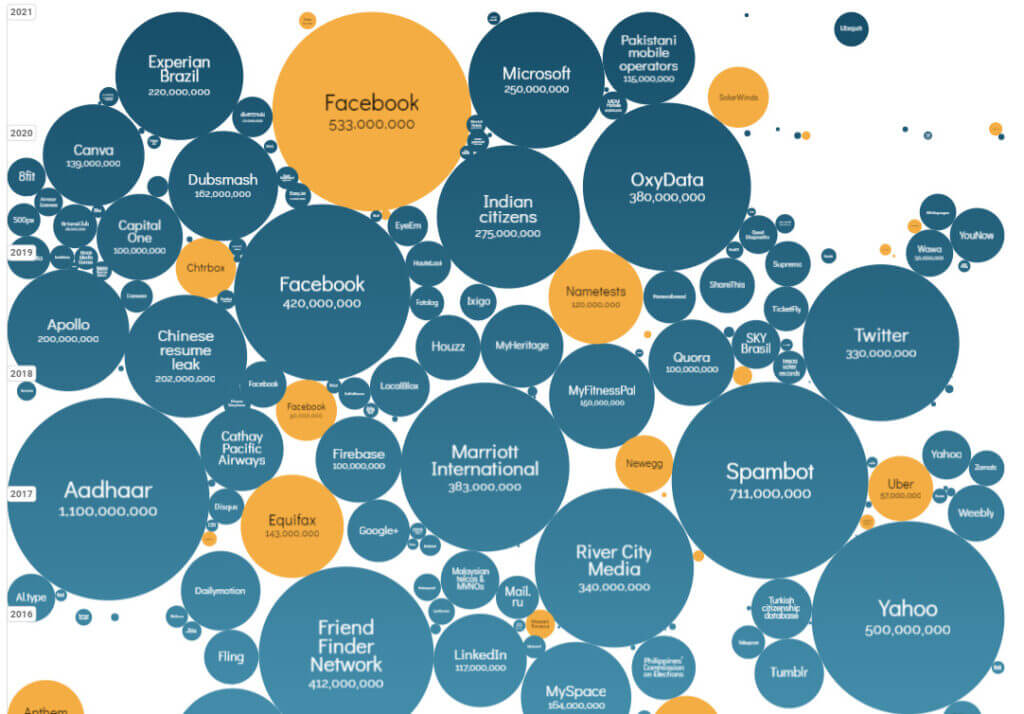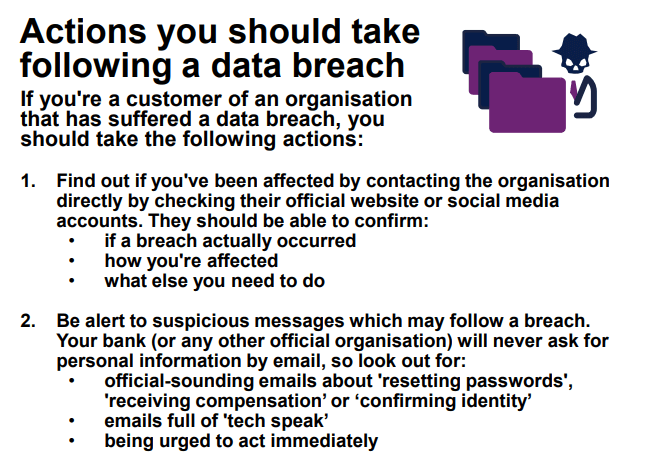Data breaches are one of the biggest threats in the modern era. Each year hackers perform more than 1000 data breaches. Damage from these breaches averages around $3.86 million, making the total cost of breaches well over $1 billion globally each year. So how are you supposed to defend yourself against the threat of these breaches? This guide will teach you everything you need to know if you become the victim of a data breach.
What is a Data Breach?
Data breaches are often a subject that newspapers and websites bring up. But, if you’ve never encountered the term, it may be a little confusing. A data breach is the act of a hacker or scammer gaining unauthorized access to a system. The hacker in question will then farm information from the system and sell it to the highest bidder online.
Data breaches are one of the most common forms of cyber attack. Hackers favor this attack because data is usually easy to obtain and valuable to the right people.
How Bad Data Breaches Have Become

If you’re not up-to-date on the news, you may not understand how bad the issue of data breaches has become. In 2018 alone, the United States suffered 1,244 data breaches, with over 400 million records affected. Since then, the number of data breaches has increased by 11% in 2018.
Even worse, Varonis reported in 2020 that 56% of Americans didn’t know what to do about a data breach, and 64% had never checked if they’d been the victim. Thus, despite being rampant, the general public does not understand data breaches.
What to Do if You’re the Victim of a Data Breach
You must act fast if you’re ever the victim of a data breach. How you should respond will change depending on the nature of the breach. In general, you should first change any details that have become compromised in a data breach.
If your Social Security Number has been stolen, there’s little you can do. The US government will replace SSNs under extreme circumstances, but only after you’ve become the victim of identity theft. So the best solution to protect your SSN is a pre-emptive one. First, ensure you’re deleting records of your SSN whenever you stop using a service. You can visit our guide on removal requests for help in having your data taken down.
As well as changing your phone number, or any other details that have become compromised, you should also change your account passwords and 2FA settings. Then, log into any accounts compromised in the breach and change your security details. You should also arrange with your cell provider to have your number switched.
If the company that has suffered a data breach fails to inform you or take proper action, you should stop using services run by that company. A company must inform customers of a breach promptly. Unfortunately, most companies take over 200 days to detect a breach, let alone inform customers.
How to Prevent Data Breaches in the Future

Unless you work in a cyber security company, it’s unlikely that you’ll be able to stop breaches directly. Instead, it would help if you took action to minimize the chances of becoming a breach victim.
It would be best to ensure that as little of your information is kept online as possible. For example, when signing up for a service, only give them the bare minimum information they ask for. The fewer data is available about you, the less chance you have of becoming a victim.
It’s also a good idea to limit the companies with your information on file. Instead, you should contact the company and send them a data removal request whenever you finish a service. We have a guide on data removal requests to help you keep your data secured.
Finally, a great step is hiring a personal cybersecurity manager. If you’re a high-value target or a business owner, you can hire us to help you stay protected.
Featured image by Mashka from Shutterstock.com